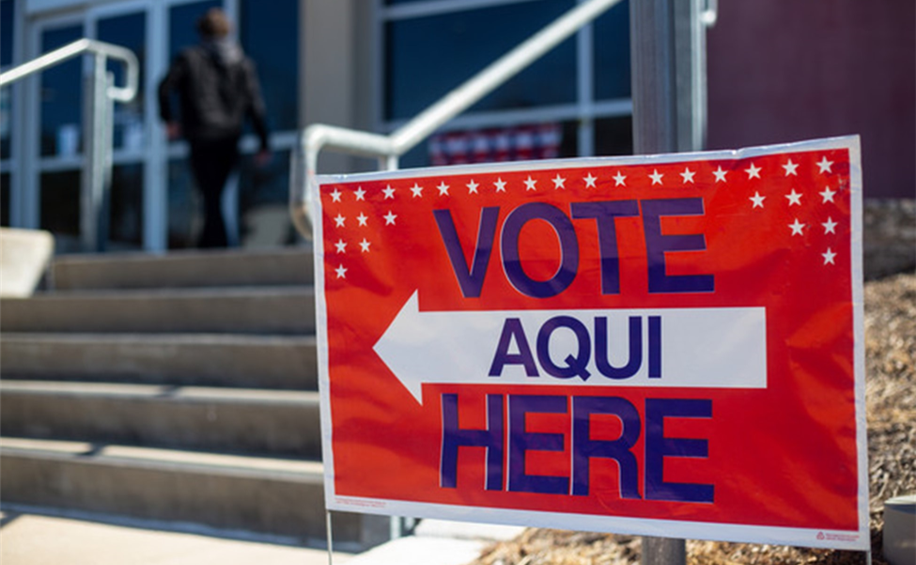The 2024 election season has begun.
Candidates identify political and policy priorities. Voters constantly wonder where on the political spectrum the country will land.
At the same time, a political messaging battle about voter turnout and possible voter suppression unfurls. Every candidate has the same goals. How to capture the support of critical demographic groups? How to get them to vote — or, alternatively, ensure their votes are suppressed?
Latinos are one of those groups that everyone wants.
Latinos are a young, growing, and economically formidable group. Will they vote? And for whom?
The April 4, 2023, Chicago Mayoral runoff election caught the attention of political pundits and leaders around the country and across the ideological spectrum.
This election was viewed as a harbinger of 2024. One of the most salient concerns was the Latino vote. A young population, Latinos constitute one of the largest and fastest-growing sectors. They account for more than 50% of overall population growth in the U.S.
Pre-election data indicated that the Latino vote was up for grabs. The post-election analysis revealed the Latino vote split between the progressive and center-right candidates. This data confirms that no group can assert that Latinos are in their corner.
The lesson for 2024 is that the Latino vote is up for grabs. The candidate who captures the Latino vote will have a more straightforward path to victory than one who does not garner their support.
There is competition for the Latino vote. But there is also much consternation that Latino voter turnout is lower than other racial or ethnic groups. In 2020, the percentage of Latino voters increased, but the turnout of Latinos was lower than it was for other racial/ethnic groups. This same pattern repeated in the 2022 and 2023 Chicago Mayoral elections.
This relatively low level of voter participation means Latinos have less of a voice in determining who is elected. It also means they have less impact on what policy priorities are acted upon than one would expect from a group responsible for a significant portion of population growth, new homeownership rates, labor force participation rates, and increases in consumer spending power.
A mainstream media response to the relatively low voter turnout among Latinos is to ask why more Latinos don’t vote.
That is the right question.
But the common assumption is that Latinos are not doing what they should do given their circumstances and are not playing their proper part in the political process. These popular culture assumptions do not help us to understand Latinos’ relatively low voter turnout.

Latinos fully participate in all other social and economic arenas, often at rates higher than other demographic groups.
Why is voting the one arena where their participation rate is relatively low?
The emphasis should shift to discovering how the political system has failed Latinos to determine why Latino voting rates are low compared to other groups. What impediments contribute to political parties’ and political leaders’ failures to ensure Latinos understand the importance of their vote and the voting process?
Rather than asking why Latinos are not doing something, the inquiry should shift to what political leaders and political parties are not doing to engage Latinos.
When we view increasing voter turnout among Latinos through this lens of how political leaders have failed Latinos, we can begin to structure a political process that will better turn out the Latino vote and better serve all in a multi-cultural, multi-racial, and multi-ethnic society.
If we can identify and rectify the failures of our politics to engage Latinos, we can begin to restore civic engagement and trust in our political leaders among this group. We can hold leaders more accountable and make them responsible for their actions and policy choices in this arena.
If political leaders ask how they have failed the people and redress those challenges, then perhaps de Tocqueville’s 19th-century observation that in the U.S., “the people reign over the American political world as God reigns over the universe” will again galvanize American political reality.
Successfully bringing members of one of the fastest-growing demographic groups into a fuller level of political participation means we have a better chance to ensure that the great Enlightenment experiment continues.
But failure to fully bring the Latino community, a prime driver of population and economic growth as well as the rates of labor force participation and homeownership, into the political process ensures that this group will have only a weak voice in setting social and economic priorities and policies.
This failure would be detrimental to all.
Noreen M. Sugrue is currently the Director of Research at the Latino Policy Forum. Before joining the Latino Policy Forum, she was a professor at the University of Illinois at Urbana-Champaign. She is the author or co-author of many articles and book chapters. Her international and domestic research focuses on immigration, immigrants, gender, health care, and the workforce centering on inequity, inequality, and distributive justice. In addition, she analyzes and evaluates the construction and implementation of social policies to address and redress inequities.

